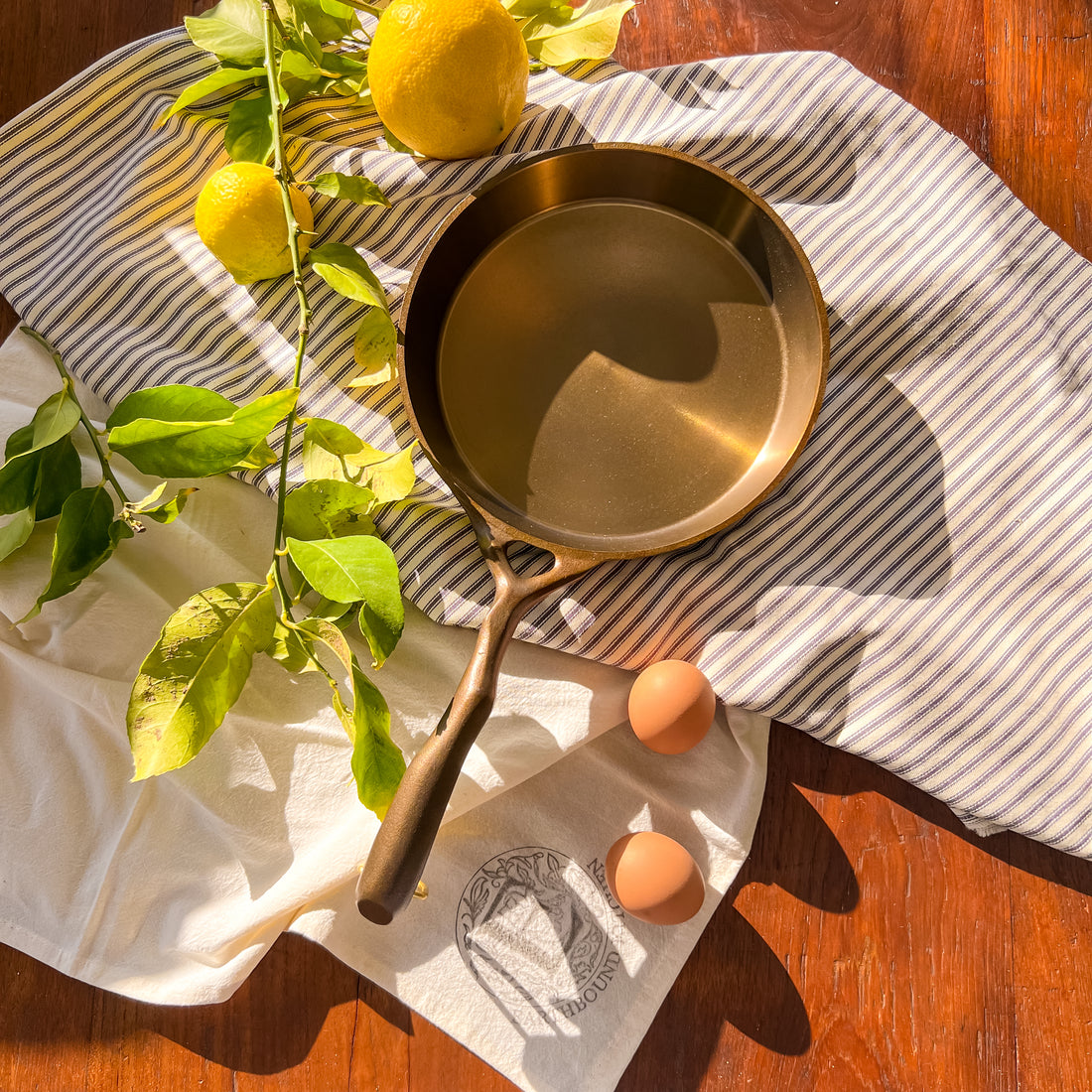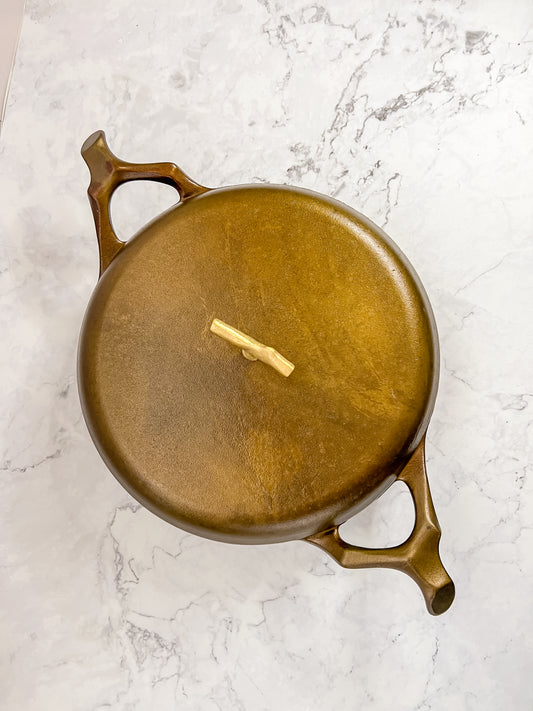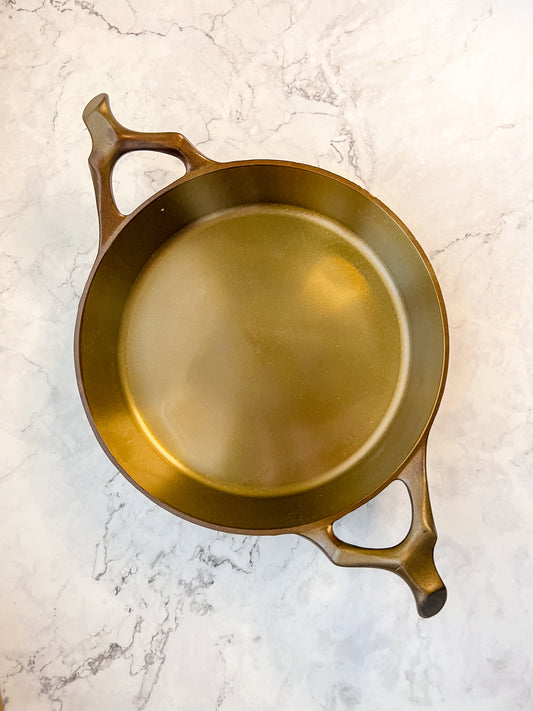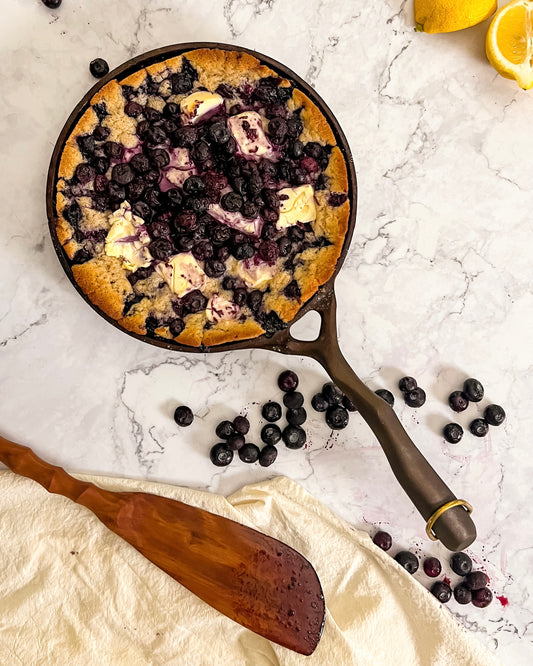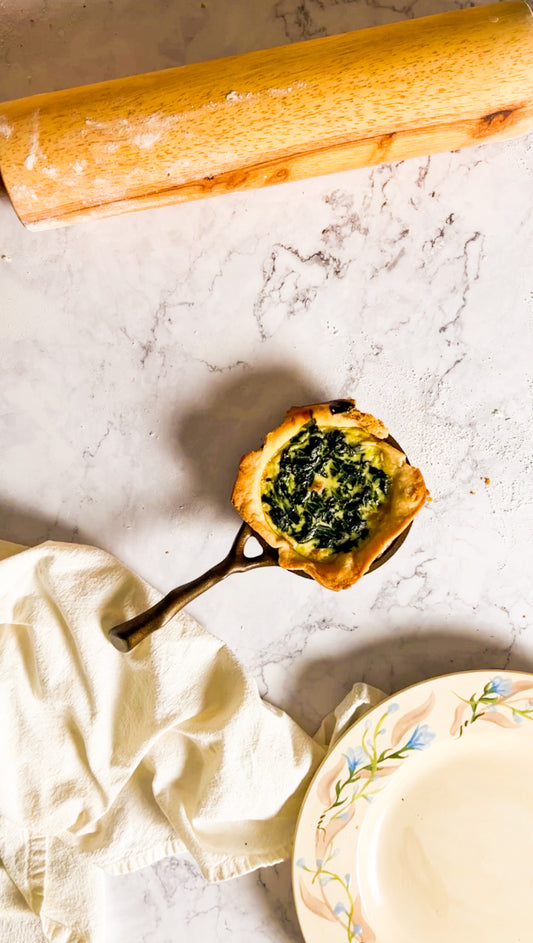If you have ever looked up how to clean your cast iron, you probably realized there are many different camps in the cast iron world. They all proclaim with full throated confidence that they know the best way to care for it. Honestly, like most things, there are several acceptable ways to clean cast iron and it's not as dire as anyone makes it seem. However, there are a few things that the cast iron community largely agrees upon, so let's touch on those first.
Are dishwashers O.K.?
The short answer is no, never put your cast iron in the dishwasher.
The dishwasher is a hot steamy environment and dishwashing detergents are pretty aggressive. This will lead to your non-stick seasoning being stripped, leaving your skillet vulnerable to rusting.
Don't soak your cast iron
Water is the original gangster of erosion. Give it enough time and it will break anything down. It doesn't take much time at all when it comes to the seasoning on your cast iron. A few hours in water will likely cause your iron to rust.
Soap or no soap?
You've probably heard someone say "no soap on cast iron". I learned that rule comes from the days when soap had vast amounts of Lye in it. If you're not familiar with Lye, it's an extremely corrosive alkaline liquor. It is in lots of things from fertilizer to paper. The reason it's bad for cast iron is because it eats through the seasoning. Lye still exists in some soaps, but these days it's there in much smaller amounts, making soaps far less abrasive than they once were.
That being said, most dish soaps advertise that they "cut through grease" which is great for most things, but not for your seasoning which is made up of oil (A.K.A grease). There's also a part of me that thinks if I use soap, small amounts of it will get baked into my seasoning, though I have no proof of that being true. Regardless, most cast iron users still hold true to the "no soap on cast iron" rule, myself being one of them.
So now that I've told you everything we shouldn't do, let's talk about what we should do.
First, we wash
I scrape off all the food bits with a spatula. I prefer wood because it's more gentle, but a metal spatula won't hurt either. I then wipe out any remaining pieces and excess grease with a towel. I rinse it with hot (not scalding) water and I am done. If there is something I'm having a hard time scraping off, I take a soft brush and scrub it with coarse salt. It wont hurt to use a dab of soap every once in a while, but as we've discussed, I don't recommend it.
Then, we dry
After washing, I dry it completely with a towel. I never air dry because that leads to rust. After toweling dry, I put it on medium-low heat on the stove top for a little while to make sure any remaining moisture is gone.
Last, we oil
Immediately after my pan is dry, and while it’s still warm (not hot), add a few drops of oil and use a paper towel to lightly coat the entire interior. I work it in evenly, wipe off any excess, and let it cool before storing. This thin coat of oil protects your pan from rust and adds to its seasoning. Honestly any food grade oil is fine here. I've even seen people use animal fats. Personally, I like using oils with a low smoke point like coconut or olive oil. More on that here.
What if the worst happens?
The worst being that scary four letter word in the cast iron world; rust.
This is a bummer but don't despair. It just requires a good cleaning and a couple rounds of seasoning. I'm going to let the folks at Nest Homeware explain this one in more detail;
"Cast iron is porous (even after seasoning), which means it can absorb moisture. If this happens with oil and you heat it, you’ll get seasoning. If this happens with water and you leave it, you’ll get rust…
Rust’s chemical name is iron oxide, which literally means iron+oxygen. Anytime cast iron is exposed to moisture in the air, there’s potential for rust to form. This is why seasoning is so important. The difference between rust on cast iron and rust on steel is that rust won’t destroy cast iron - it can always be saved.
First determine how much work is needed. Small spots can usually be remedied with a good cleaning and a light coat of oil in storage. If your pan is really rusty, it will be worth going through a few rounds of seasoning after cleaning.
Prevention is the best move here… Make sure to dry your pan completely after every washing. And a light coat of oil while the pan is still warm will prevent water and air from reacting with the cast iron to form rust."
There you have it. A quick-not-so-quick look at cast iron care. If you're ready to buy your first cast iron piece or wanting to add to your collection; check out our beautiful pieces from the talented folks at Nest Homeware below.
